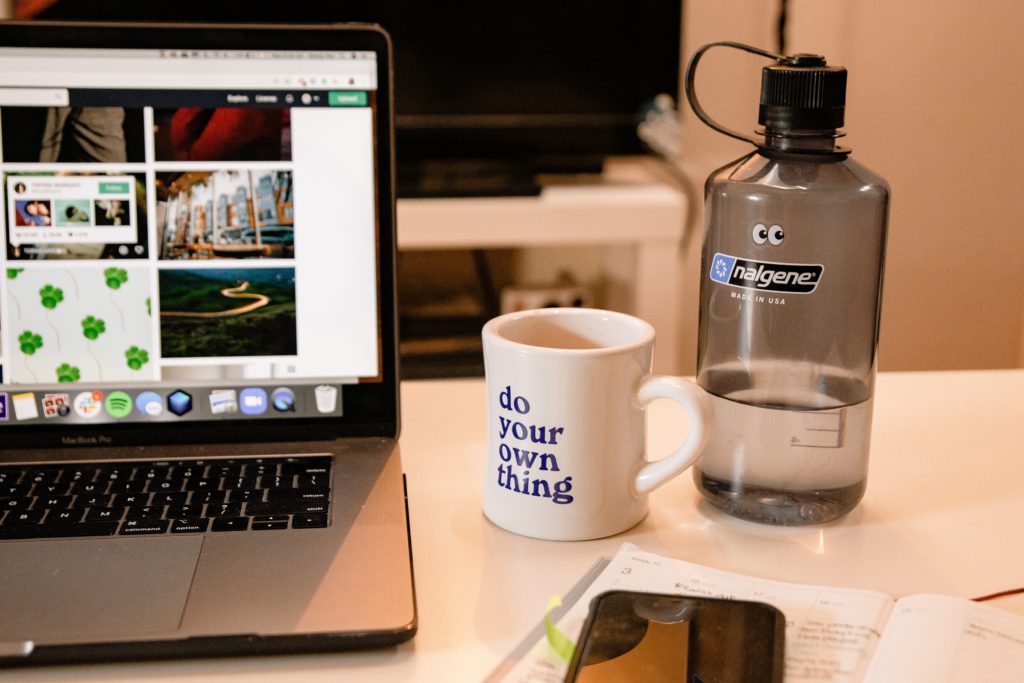
Reminiscing over the last two decades of trends that disrupted and changed the way Human Resources (HR) worked, my mind narrows it down to changes in technology, advances in telecommunications, and an increasingly young workforce. Let’s briefly touch upon these.
Rapid changes in technology and a fast-shrinking world forced HR professionals to change the way they worked. Not so long ago, before the pandemic took hold of our lives, HR teams were gearing up to deal with the “workplace of the future”. A workplace where artificial intelligence, robotics, and cutting-edge automation was to forever accelerate and reinvent the way HR dealt with the workplace and the workforce.
Business and ways of working fast-forwarded when enhanced telecommunications dovetailed with technology. Suddenly work was on the move, changes happened in real-time and spaces blurred. HR went from a phase of dealing with rules and policies at the workplace to dealing with policies around “work from home”. Communication was not just about how to speak to colleagues and clients who you knew but also to people across countries (referring to the offshoring boom and call centres).
When Gen Y and Z hit the workforce, HR teams were in for a rude shock. Their carefully laid systems and processes suddenly seemed inadequate and archaic. No longer were they dealing with employees who were looking for a “work for life” kind of a job and a nice salary package. It’s not like they didn’t want money! But that just didn’t seem reason enough to stay on!
So, the age of active employee engagement began. It was time to woo and retain high performing employees. Rescue for HR professionals came through yet another technological breakthrough – Analytics and Big Data. Using analytics, HR teams are now moving away from “one size fits all”. HR no longer doles out the same goodies for all.
Analytics throws up information on work patterns, purchase patterns, preference on holidays, work-life balance, and pretty much everything about each employee. HR has now the benefit of understanding individual employee perspectives, needs, and aspirations. This helps them to cater to their individual requirements keeping in mind the criticality of the workforce. Companies such as Facebook, Best Buy, Google, and Sysco are a few who use analytics as an integral part of their talent engagement programme.
Just as HR teams thought they were getting a handle on things and were crystal-gazing at the next big change – there was a knock on the door. The Covid-19 pandemic has shown the world changes that were unexpected, unprecedented, and unfathomable. As the dust settles down on the rising graphs, data predictions, talks of tests and vaccination – the HR fraternity across the world realise that this bug is here to stay for a while. With the lockdown impacting businesses across the world, HR is left with a range of issues to deal with. This includes dealing with a workforce that faces a possible reduction in pay or in numbers, employee’s health and safety, internal communications, and new employee policies, to mention a few.
Change is constant, but the show must go on. There are questions that need answering for that to happen.
Should HR reorganise their priorities completely?
Should they focus on low hanging fruits like employee health and welfare?
Should they increase adoption and use of available communication and technology tools to battle the odds?
To my mind it is all of these and more.
HR Trends Report 2018 by Deloitte highlighted social enterprise as one of the most important trends for organisations to focus on. Little did the world realise, that there would be so little time for organisations to prove themselves worthy of their existence. Organisations, today more than ever, will need to demonstrate the need to be a good citizen and serve as a role model for their peers, by promoting a high degree of collaboration at every level.
Enterprises will be judged by society by their actions towards their customers, employees, and community. If employees are truly the asset of an organisation, then now is the time to demonstrate that, beyond mere lip service. Building trust with employees will be key. As the HR guru, Josh Bersin says, “Our companies are the “most trusted institutions” in people’s lives.”
It is time to live up to that trust.

The first concern as business staggers back to normalcy is health and safety. Traditionally, this meant health insurance, maternity/paternity, and sick leaves. HR always categorised employees working under “hazardous circumstances” as a separate group, which had access to a host of other benefits. Now we are talking of the entire working population of the company being at risk.
HR may be headed for a complete re-haul of how it regards employee health. This could involve actively monitoring overall employee well-being (mind and body) by providing them and their families a safety screen on health. Training and orientation on how employees should conduct themselves with clients, vendors, and colleagues, in the context of social distancing norms, may have to be penned down as part of HR policies.
Organisations will need to recognize and reconfigure their employees’ positions (and consequently policies) depending on the level of hazard/ contact/exposure/stress/anxiety they face in their jobs. Stress and anxiety may now have a new meaning that goes beyond individual workload, achieving individual goals, and working irregular work hours. Anxiety-related to living alone, relationship issues, job uncertainty, and the future has risen significantly during this period. These are signs that cannot be ignored as they impact the wellbeing as well as the productivity of employees. Professional counseling on wellbeing could become a new “standard” offering by companies to their employees.

It is likely that in the immediate future HR teams would be under pressure to act innovatively within a constrained budget. For example, as organisations limp back to normalcy, they may start looking at recruitment differently. Two immediate action points are likely to emerge because of this.

The first could be the use of virtual platforms as basic as Skype, Wapp, Zoom, etc. for interviews. In addition, this could involve the use of more sophisticated talent assessment tools such as case studies, cultural fit/ psychometric tests and cognitive tests (e.g. Mercer Mettel, HireTalent, Aon’s virtual assessment centre to name a few).
While there was already a trend to use online assessment tools, this trend is likely to increase manifold. One reason is because of the ability the tools provide to assess candidates remotely and safely. The second is to do with the fact that despite not being able to meet them in person, the tools being deployed will provide specific information that will come handy in selecting the right candidate.
The second action point is related to the use of gig workers who can work remotely, safely and flexibly to complete tasks without having to add full-time employees for job roles. Gig workers are not just from the unorganised sector but also include data analysts, data scientists, UI/UX designers, software developers, product writers, videographers, etc. Early gig economy workers were hired primarily because of the need for highly skilled individuals who were less readily available. Soon more and more employees, keen to stay relevant and earn, and yet reluctant to have a full-time job got added to the increasing pool of gig workers.

The gig economy may play a bigger role in the near future. The workforce is likely to see an increased blend of full time and gig workers. The challenge will be to come up with policies that address this workforce. While companies like Uber and Lyft, Swiggy, and Zomato are early movers in coming up with policies for such workers, a lot will depend on government regulatory policies and revisiting labour laws to avoid conflicts. HR teams will need to step up their internal policies around recruitment, reward, onboarding, and engaging such workers to attract the best talent, as the demand for such workers will spike.
How soon organisations are able to respond to the crisis will depend on global and local structures and the agility of organisations to react and respond. Agile organisations are no longer a nice to have, as we step into uncertain times. It is a must-have for organisations to tackle issues quickly and to respond with effectiveness. Organisations like Spotify, Netflix, and Zappo are relatively new businesses but agility is built into their culture. This reflects in their response to customers, changing business environment, team collaboration, and decision making. HR can embrace uncertainty (like the one we are facing now) much more easily if it has agile systems and workforce.
This will not happen by only restructuring the organisation. It will need the reskilling of the workforce to cope with the new way of working in the new “post- COVID economy”. Even as I write this post, the domestic airways are precariously opening up, with still raw ways of dealing with customers as well as with their own work. Health care workers and doctors are gearing up to remotely check patients in larger numbers. This was something which was done in smaller numbers in the past and scaling this up would require doctors to re-skill their patient evaluation capabilities significantly in terms of diagnosis and counseling.
Similarly, education for students through distant learning will become increasingly necessary and will need a completely new set of skills for the teachers. This is likely to happen across industry verticals and the sooner HR rises to this occasion using digital and learning platforms to train its workforce, the faster the organisation will embark on its path to recovery.
Organisations need to recognize that being digitally capable is no longer a matter of choice. What is clearly different today is that keeping people safe and reducing risk has, for now, displaced cost as the key driver behind digital learning. Distancing is here to stay for a while, “going viral” and “high touch” are no longer happy words to use!
Business surprises have come in the past be it the dotcom bubble burst in 2000 or the more recent recession of 2008, not to mention many others in the past. Each of these has changed the way HR and businesses respond to survive and thrive. Organisations who adapt to the new normal innovatively and with agility, inclusiveness, and resilience are likely to find their way back to recovery sooner than others. Therefore, change adaptability is crucial.
The COVID-19 pandemic has not broken systems. It has exposed the lack of business continuity planning and has issued a sharp call to act or perish. The future of work has just added a new dimension which is all about trusting employees to perform while supporting them with the right resources and skills.
References:
- 2018 Deloitte HR trends: A social enterprise is an organization whose mission combines revenue growth and profit-making with the need to respect and support its environment and stakeholder network.
- Mckinsey Article: To emerge stronger from the COVID-19 crisis, companies should start reskilling their workforces, May 7, 2020 | Article
- KellyOCG: ” The gig economy is thriving” – White paper

Sucheta Hota is an HR practitioner with 24 years of experience in HR advisory. She has worked with the Big 4s for more than two decades and has had the opportunity to work across multinationals, MSME’s, multilaterals, bilaterals, and NGOs. Her area of expertise lies in HR Transformation and Change Management on a large scale. Her work spans across India and Asia where she has advised clients on complex client issues. She has co-authored several articles on HR – Transformation which can be found in the public domain. She also pursues her interests in the world of performing arts and is a regular on the theatre circuit in NCR.
Disclaimer: The views, thoughts, and opinions expressed in the content belong solely to the author, and not necessarily to the author’s employer, organisation, committee or other related groups or individuals, including Marg Advisory Services.


Saurabh Dwivedi
11 Jun 2020Sucheta, really insightful … future of work definitely has accelerated post COViD-19….will require organizations to think very differently to navigate post COViD world..
Sukanya Rath
11 Jun 2020Thank you for your comment, Sir.
Anshuman
11 Jun 2020Intense article. Holistic framework. well rounded views from everyone’s perspective. Balanced,objective and unbiased in an apocalyptic scenario.
Sukanya Rath
11 Jun 2020Thank you, we appreciate your feedback.
Abhishek Anand
12 Jun 2020An insightful article – really like the way in which you articulated your thoughts – taking the liberty of sharing this article.
Sukanya Rath
12 Jun 2020Thank you, do share with the Touchstones link!
Sumit Sagar
17 Jun 2020Article provides a good insight, contextualizing role of HR practitioners to manage business and people agenda. Partnering expectation across a broad spectrum, be it the agenda on Digital Transformation (Co-bots, RPA, app, mobile) , or on health safety and well-being. Very apt and succinct. Thanks Sucheta for sharing!!
Sukanya Rath
21 Jun 2020Thank you for the feedback!